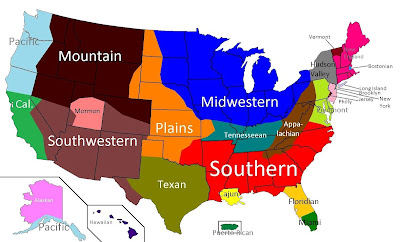When I was in eighth grade, a movie aired called The Autobiography of Miss Jane Pittman. We were encouraged by our English teacher to watch it, and it turned out to be well worth the time, even to a fourteen-year-old who at that point didn't care much about history. It was based on a novel by Ernest J. Gaines, and starred the amazing Cicely Tyson, who played a woman born into slavery, who lives to age 110 and sees the beginning of the Civil Rights Movement in 1962. (And yes, Tyson plays the title character the entire way through -- not only is the makeup incredible, but so is her ability to portray ages between 20 and 110 absolutely convincingly.)
There was only one thing that struck a sour note, and I was far from the only one in my class who noticed it. One of the characters was the villainous Albert Cluveau, who was identified as "a Cajun." And this guy had the worst Cajun accent ever. My mom was 100% pure Cajun, so I know whereof I speak; most of my classmates were Cajun as well, given that I grew up in Lafayette, Louisiana, "the heart of Cajun Country." Cluveau was portrayed by Will Hare, who wasn't even from Louisiana, and I still remember one of my friends saying, "Why didn't they just hire an actual Cajun? There are plenty of 'em around."
Given how long ago this happened, I don't recall exactly what it was that pinpointed his accent as fake; certainly he was trying his best to make it sound right, but it simply didn't work. There was something about the pronunciation, but also the cadence -- the "swing" of the language -- that was way off. And to anyone who grew up in southern Louisiana, it did exactly what movie directors never want to happen; it took the watcher right out of the scene, made them say, "Okay, that's an actor trying to play a role and not doing it all that well."
Sometimes actors can pull it off, of course. David Tennant is Scottish, but does a convincing English accent as the Tenth Doctor in Doctor Who. And in the episode "Tooth and Claw," there's a scene where he's pretending to be Scottish -- so he's a Scottish guy playing an English guy who's trying to do a Scottish accent badly.
Strangely enough, it works.
The reason the topic comes up is a study out of Cambridge University that appeared last week in the journal Evolutionary Human Sciences, which tested various groups of people in the British Isles to see how good they are at detecting fake accents. And it turns out that people from Glasgow, Dublin, Belfast, and Durham are way better at picking it up when someone's faking their regional accent than folks from the southeastern parts of England (including London), and also the area around the city of Bristol.
Glaswegians scored in the high seventies to around eighty percent accurate; people from Essex did the worst, averaging only a little better than chance. The surmise is that the areas where the scores were lowest tended to be more cosmopolitan, where there's a greater likelihood that residents have moved there recently from somewhere else. Hearing lots of different variations on an English accent, it appears, might make you less aware of when someone's faking your own. Another factor is that some of the places that score the highest -- Glasgow and Belfast, especially -- have high amounts of regional pride, and value the local accent as a marker of belonging.
"The UK is a really interesting place to study," said linguist Jonathan Goodman, who led the study. "The linguistic diversity and cultural history is so rich and you have so many cultural groups that have been roughly in the same location for a really long time. Very specific differences in language, dialect and accents have emerged over time, and that's a fascinating side of language evolution... Cultural, political, or even violent conflict are likely to encourage people to strengthen their accents as they try to maintain social cohesion through cultural homogeneity. Even relatively mild tension, for example the intrusion of tourists in the summer, could have this effect... I'm interested in the role played by trust in society and how trust forms. One of the first judgments a person will make about another person, and when deciding whether to trust them, is how they speak. How humans learn to trust another person who may be an interloper has been incredibly important over our evolutionary history and it remains critical today." |


